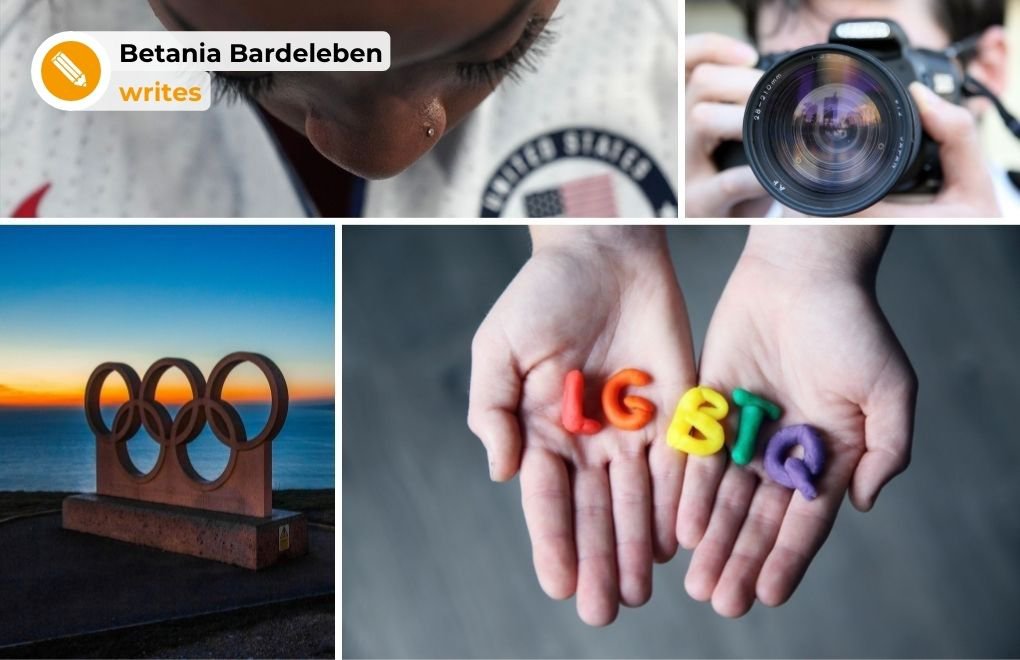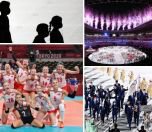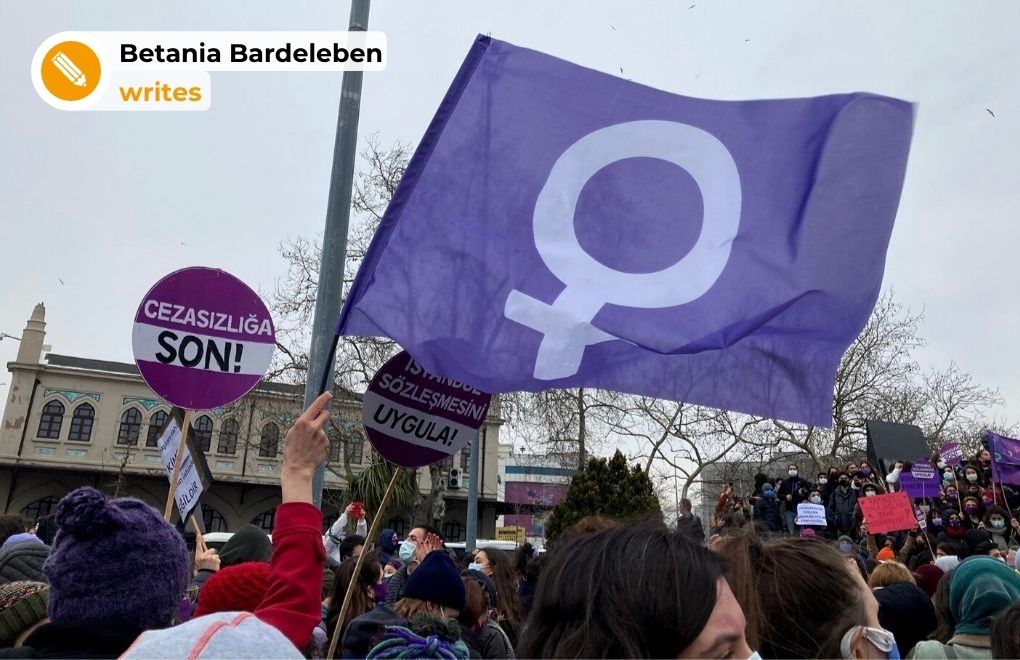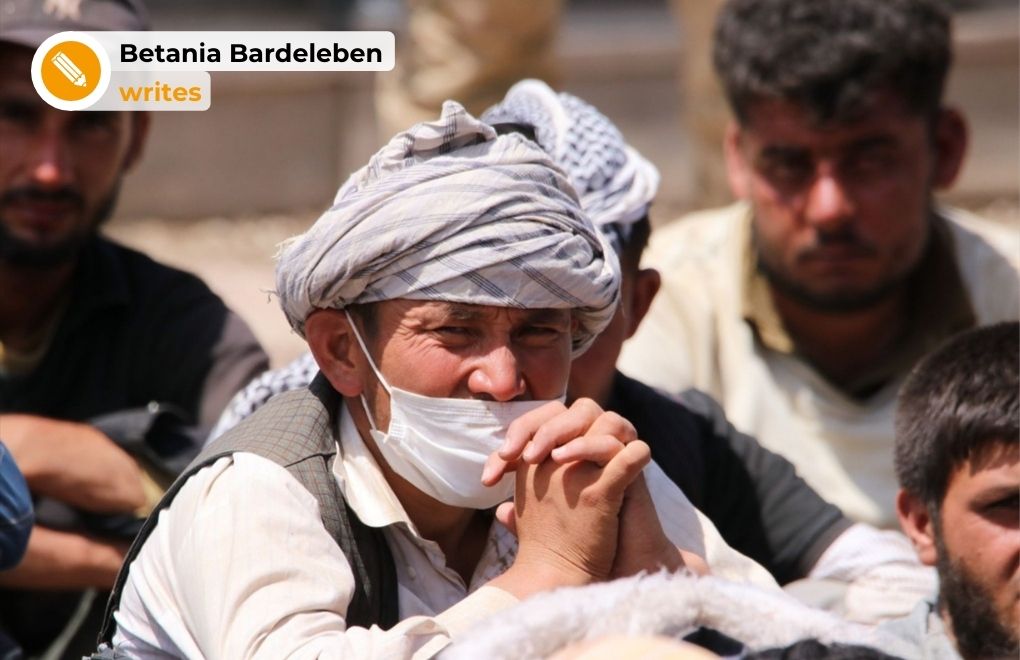* Photos: Simone Biles (on the top) by the AA; Pixabay
For the first time in the history of the Olympic games, this year in Tokyo, as many men as women athletes started in the competitions.
Another inclusive achievement is depicted by the over 160 Olympians that openly identify as queer.
CLICK - Tokyo 2020 Olympics: The first three days
The reason why this happens only far more than a century after the Olympic games were reintroduced is simply because the bans and restrictions for women were lifted at an extremely slow pace. It took until 2012 that boxing as an Olympic discipline finally became Olympic for women.
Women remain underrepresented
Women in professional sports are still underrepresented in the media. This fact is amongst others maintained by women's overall underrepresentation in sports journalism and sports associations.
According to studies of the German Olympic Sports Association (DOSB), in non-Olympic events, women receive only 10 percent of the media attention.
This naturally leads to less appreciation of women, their achievement in public and therefore a huge gender gap in the payment, as much of the income in sport derives from sponsoring and commercials. Further, this contributes to the lack of women idols.
Sexist rules made by men
Not only are women in the media prevailingly shown in passive situations and rather contactless sports, also the way in which the media reports is more than questionable.
A study of the sociologist Bettina Rulofs revealed that the cameras aimed at the female Olympics at 2004 in Beach-Volleyball showed the athletes' breasts for 20 percent of the time.
Due to the recent decision of the Norway's beach volleyball players to compete in slightly longer pants in the European games, the debate about sexism in uniform rules now echoes internationally in the media.
The outfit was condemned by the commission as "inappropriate" and the players are facing a fine.
The fight for a free choice of clothing is fought in different forms: In Qatar, beach volleyball players insisted on playing in the usual shorts instead of in pants of knee-length as precisely prescribed by Qatar.
According to a survey conducted by the Südwestrundfunk (SWR) regional public broadcaster, one third of athletes in Germany competing on international level believe that their looks are very important for their career.
Because it is taking so long for the games to become more equal, not only sports, but also watching sports remains a thing for men.
Testosterone decides
Also, for the first time, the first openly transgender weightlifter is competing in the Olympics. The attendance of Laurel Hubbard, a weightlifter from New Zealand, caused much controversy and discussions.
The sensitivity to testosterone differs. People with a high level of testosterone might still not be able to use it. Despite these findings of neurobiologists, the controversies mainly exist as to the hormones deciding at which sports athletes are allowed to compete.
Prior, the Olympic games were denied to middle-distance runner Caster Semenya, a medal winner from South Africa. She would have been forced to take medication to lower her testosterone results.
This means that transgender people are only "women enough" to compete in the games, when they "lack" a male hormone – which implies an essential superiority of the male over the female.
Besides having their gender identity discussed publicly, the physical examination for the athletes remains humiliating.
Only interesting as 'victims'
While due to the tradition of sorting female influence out of sports, there is a lower public interest in women sports-related media articles.
What admittedly received more attention are the news about tragedies of (norm beautiful) sportswomen.
These news articles deal with the prohibitions of women to do sports or about tragic life stories such as Yusra Mardini from Syria competing for the Refugee Olympic team, about whom a book has already been written.
The content of the news reports is not about sport itself, because as soon as this happens, the interest begins to fade.
More than 70 percent of professional women athletes are trained by men and also in the associations and the media, they continue to make the rules.
Only when sport gets rid of sexism, more women in sports can become individuals in their realm - Only then it starts to become interesting for the people that watch sport because they love sport.
About Betania Bardeleben ReynaJuly 2021 intern at bianet English. Social and cultural anthropologist and journalist from Germany. Currently enrolled in a German-Turkish Master's Program in Berlin and Ankara. Living in İstanbul. Especially interested in power structures, subcultures and rights of women, refugees and minorities. Regional focus: Middle East and North Africa (MENA), Turkey, Mexico. |
(BB/SD)








